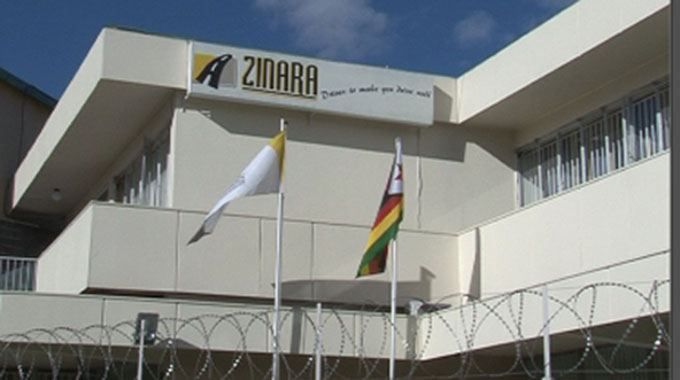Council gets $250m for road upgrade

Freeman Razemba
Senior Reporter
Harare City Council yesterday said it had received just $248,7 million out of the $825,812 million allocated by the Zimbabwe National Road Authority (Zinara) for city roads and this was inadequate to complete all roads that were earmarked for rehabilitation.
But on Tuesday another $145 million was sent by Zinara to Harare after the accounts for the previous batch of cash checked out.
Early this year Zinara had made it clear that all local authorities were expected to account for every cent they received from Zinara and show how it was spent on roads, with all the normal document trails an auditor might need, before the next tranche of disbursements was sent.
In the first quarter of this year Zinara distributed nearly $6 billion to all provinces and local authorities for road maintenance under the Emergency Road Rehabilitation Programme.
In February Zinara said it was setting aside $17 billion for the ERRP. The ERRP is in line with the ethos of the National Development Strategy 1 whose main aspirations include infrastructural development as a key enabler in attaining Vision 2030 of attaining an upper middle income economy.
Zinara does not do road work itself, but it is the collection authority for the two sources of revenue that must be spent on roads, the vehicle licence fees and the toll charges.
It disburses this money to the road authorities, who include the Government as well as the local authorities, and then follows up to ensure that the money was spent on road works and not, for example, on salaries or any other service.
However, in March Zinara had made it clear that local authorities and the Department of Roads and the District Development Fund from central Government had to show how they spent their money from Zinara.
Those who had not fully accounted for last year are not going to get anything from the $17 billion that the road authority was by then ready to allocate this year.
There had been concern that local authorities strapped for cash flow may have disbursed previous tranches of Zinara cash on other expenses, which not only breaches the rules, but also opens the door to rewarding incompetence and corruption.
Speaking during the budget interface meeting yesterday, Harare Mayor Councillor Jacob Mafume also said for the 2022 budget year, they were allocated $2,3 billion, but had only received $165 million.
“For us to manage the affairs of people in our jurisdiction we need resources, and the critical tool is our budget. As we prepare the budget, we are advised of our allocation in terms of the intergovernmental fiscal transfers popularly known as devolution funds.”
“For the 2022 budget year we were allocated $2,3 billion and so far, we have received $165 million. The money was predominantly for the WASH (the Water, Sanitation and Hygiene) and Roads programmes. This means that all projects that were supposed to be funded using intergovernmental fiscal transfers cannot be completed.
“It is now pertinent that the requisite policy, regulatory and institutional frameworks necessary to fully operationalise and entrench the implementation of the devolution agenda be put in place so that we can access our allocation fully.
“For the Roads Programme, Zinara allocated us $825,812 million: we have received $248.7 million. This also means that all roads earmarked for rehabilitation could not be completed,” he said.
Commenting on whether they had acquitted to Zinara the $248,7 million that had been received, Harare City Council spokesperson Mr Innocent Ruwende said: “We acquitted back in June and we are awaiting payment.”
Zinara spokesperson Mr Tendai Mugabe also confirmed the developments.
“Yes they have acquitted and yesterday (Tuesday) we disbursed another 145 million to them,” he said.
Meanwhile, Clr Mafume also said as at August 31, 2022, they were owed about $45 billion by ratepayers meaning that their financial position was not sustainable.
“As we discuss the performance of the 2022 budget, those are some of the figures we need to keep in mind. Business needs to come on board to rescue the city.
“There are many areas where we can partner and get return on investment. Our infrastructure has a backlog of over 20 years: and this area is an investment opportunity. The private sector needs to invest in this city. We cannot depend on the rates account for infrastructure development.
“Devolution funds as a source of revenue is also not performing, I am bringing this to your attention because I believe the stakeholders represented here can play a part in the recapitalisation of the city,” he said.
Clr Mafume said going forward, budget interventions will continue to scale up implementation of programmes and projects targeting water infrastructure rehabilitation, road rehabilitation, and the capacity of the amenities division for efficient waste management.
He said rehabilitation and maintenance of existing assets will be prioritised, including expansion of capacity on identified critical areas.








Comments